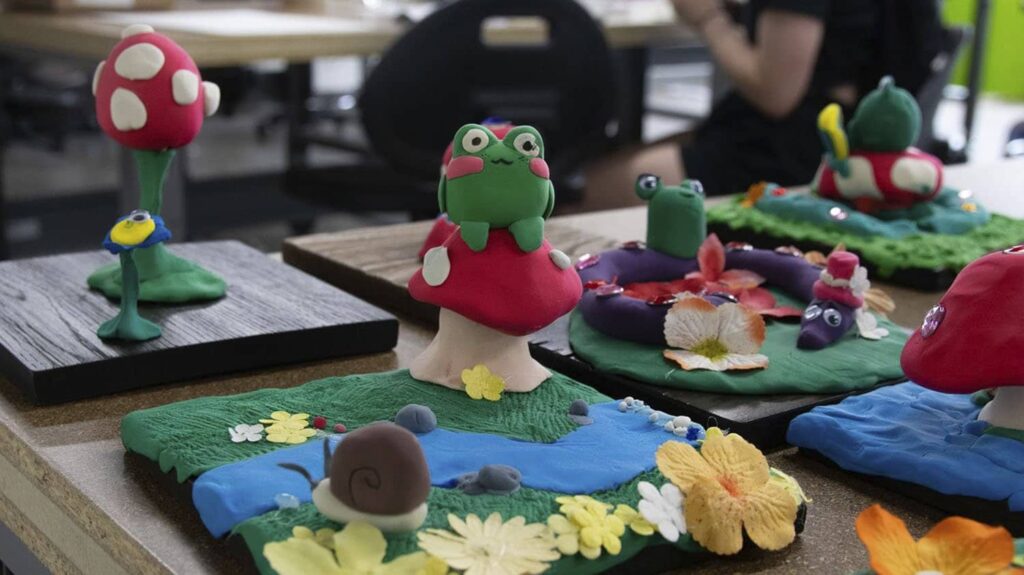Going Back to Being Together: Interview with Artist Christen Collins
Based in Cincinnati, artist and educator, Christen Collins pursues social practice through self-expression and art-making. She is currently an Instructor in the Art Academy’s Community Education Department, where she is collaborates on new and engaging projects that can be shared and explored in various ways. Collins’ passions have led her to study Print Media, Permaculture Design, Farming, Indigenous Art and Culture, and Ceramics with long term internships and residences.
In our latest blog post we sat down with Collins for a Q&A.
Photos of Christen teaching, her student’s work, and her ceramics.
Q: How long have you been an artist?
A: I mean, the funny answer I could give is, since birth. But more specifically, my mother was an artist, and she introduced me to artistic practice as soon as I could use my hands.
Q: How has working at Camp Art Academy helped you connect to a more childlike part of yourself?
A: Camp connects me to my inner child every single day. In my practice, I like to focus on healing and fun, so I often start by asking myself what young Christen would want to do, and often the answer is, she wants to make a mess and play in the mud – which lends itself well to my work in ceramics. Working with the kids at Camp allows me to explore this youthful self-expression further and continue to practice this free feeling of creating art for joy. The kids really just make art for joy, and I really appreciate being reminded how important that is.
Q: When/How did you get your start in Arts Education?
A: I am an Art Academy Alum, and I started working in Arts Education by reaching out to an old mentor and former professor of mine, Matt Dayler (AAC Associate Professor, Painting and Drawing), while I was still living in New Mexico after graduation. I told him I wanted to come back to Cincinnati and was seeking job opportunities back home, and then Matt was the one who introduced me to Community Education. I always knew I wanted to teach and do more community-based work. I’m passionate about collaboration with other artists and art organizations that work with aspiring artists, young adults, and children.
Q: Why are the arts important for children?
A: Pure self-expression! Art is a safe and healthy way to start exploring self-expression while gaining personal and shared cognitive development. How does art not benefit kids, ha-ha!
Q: What did you teach at Camp this year?
A: I taught the first week of Camp in person. It was called Artrageous Adventures. We focused on the elements and principles of design, like texture, shape, color, and balance. I also taught virtually for the final week of Camp, Comics and Cartooning. Virtual Camp comes with a lot of challenges and rewards. I can give hands-on instruction in the classroom, but virtually, it is more of a slower-paced, independent, and individualized experience. Students get to be part of a dialogue that I think is unique to virtual learning. The Google Classroom platform gives each kid the opportunity to have their moment, share and ask questions.
Q: What is the most valuable lesson you try to pass on to each camper?
A: In the words of Bob Ross, I want kids to know there are no mistakes – only happy accidents. I also like to instill in kids that anyone can be an artist. If you ask kids what they want to be when they grow up a lot of the time, they will say, Doctor or firefighter, and the fantastic thing is doctors and firefighters can be artists. Art can be something you do full time or something you do on the side; it can be a hobby or a hustle. Anyone can be an artist in any capacity. I never want my students to lose their creative joy.
Q: What is your favorite Camp moment from this year?
A: Every moment is a favorite, honestly. Getting to come to work and have children offer you hugs and tell you they love you and love being at Camp is the most heartwarming experience. It reminds me how important this work is and how lucky I am to be here with them.
Q: What has working at Camp taught you?
A: As an instructor, Camp teaches me the value and importance of time management and organization. When you are working with kids in this environment, it’s easy to get lost in the fun and games, but I always try to focus on learning, requiring a stable lesson plan.
Q: Before we wrap up this interview, is there anything else you would like to add about your experience here at Camp?
A: I would like to say that I think this is a fantastic program and I’m happy to be part of it. It’s incredible to work with kids who are often exposed to some of these artistic practices for the first time. Nothing beats it
